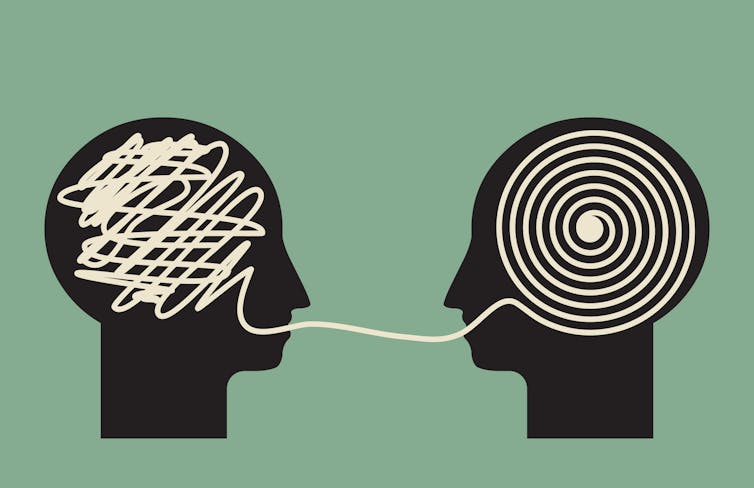One of the most important things to the storylines of the long-running TV series Star Trek is that there's a universal translator. For those who don't know, it's a scifi series set in the future, when basically social problems are sorted on Earth and everyone has enough to live on and people can just go into space because they want to and so there are these space ships that belong to the Federation that just go around space and meet people and solve their diplomatic issues or sometimes, like, just relieve their loneliness or meddle in their affairs or whatever it might be. They get involved in fights much more often than you'd think, given their mission. So they're obviously always encountering races that they've never met before who all have their own language and culture and often disastrous/hilarious misunderstandings ensue, but they can always speak each other's language. I imagine this is because it would be dull if every week they main plot line was basically Arrival. So this thing is part of their ship, or in their kit (there are lots of series) and it means that what it sounds like is everyone speaks English most of the time.
Sometimes there are bits of language that aren't translated. So often you hear Klingon spoken - in the current reimagining, we saw lots of scenes without humans in, on board a Klingon ship, and there it made sense to have them speaking Klingon (after all, someone's gone to the bother of inventing it) and subtitle it.
Then, recently, the main character Michael Burnham sets up some kind of formal conversation where she needs an advocate. The process is called T'Kal-in-ket, and her advocate is called a shalankhkhai, which we learn was called sha-set but they now use this Romulan term, and it has to be someone from the Qowat Milat order of warrior nuns. Now, we often encounter borrowings in the series, and they're simply absorbed into the story and we're all good - that's how it works in real life too, when we talk about eating avocado or drinking pinot noir or wearing dungarees. But the characters from 'our' gang didn't know these words and they all had to be explained to them and the explanations were things like 'a type of advocate'. In other words, these were 'untranslatable' words, the kind of word that refers to a specific concept that doesn't have an exact match in English (or whatever you're translating to), so you need to explain it. Other examples are schadenfreude, or saudade, or hygge, and so on. Similar examples in real life are job titles like Sultan or Tsar, where it doesn't quite correspond to King or Prime Minister or President or something. Others are titles like 'Mrs' - this is frequently the translation given for 'Frau' in German (on forms, for instance). This is infuriating to English-speaking customers who are not married and would use 'Ms', as 'Mrs' can only mean a married person in English, whereas Frau, Madame, Señora, etc simply mean an adult woman rather than a girl, so they are not good translations. (If Frau or Mme were the option, that would be fine!)
I don't know what language our crew are meant to be speaking - each their own language, I suppose, as they have a universal translator. I'd like to see a bit more of the translator running into difficulties and thereby causing a linguistic subplot.



